Anushi Mandelecha, YouthIncMag
Choose your words carefully because your email signature tells a lot about your personality.
You've just finished composing an email to a potential client you've talked with a few times before. Now comes the tricky part -- your email sign-off.
Should you use 'Sincerely', 'Regards', 'Thanking You' or 'Cheers'?
The choices are endless!
How do you sound friendly and warm without coming across as unprofessional?
What about the emails you send to your employees and business contacts?
How should you sign-off an email to these people?
Before you begin your quest to search for these answers, we must tell you that unfortunately, there's no 'email bible' as such to guide you in your email etiquette. There's no right or wrong way to go about signing off.
Further, what it speaks about you to one person may actually be different for another.
Open up one of your recently sent emails and look at how you signed it. There's a huge chance that you might have used sign-offs like 'Thanks', 'Cheers' or even just your initials!
In today's age of professionalism, it is important not to blur the lines of love, friendship and business. In fact, something as trivial as an email sign-off can speak volumes with regard to the purpose of your email and your intent as a whole.
Remember to take your time when choosing your words. It is also important that your sign-off blends with the tone of your email.
Coming across as pleasant and professional at the same time is the best thing you can do for your work life after all!
Read on to find out what message your favourite email goodbye is actually sending.
Illustration: Uttam Ghosh
Courtesy:YouthIncMag.com
Please click NEXT to continue reading
1. Best
'Best' is the slang for 'Best Regards'.
Using this sign-off gives the impression that you possess an I-don't-care attitude.
Most used by individuals in their early 20s, this sign-off signifies pretence.
Avoid using 'Best' if you wish to have a prolonged relationship with the recipient of your email.
'Best Regards' or 'Best Wishes' are much better options, especially for business purposes.
Illustration: Uttam Ghosh
2. Warm regards
'Regards' appears far flung and forceful. A person using such a sign-off may be regarded as curt or too formal.
It definitely screams that you aren't one bit chatty.
On the other hand, 'Warmest Regards' is an all-purpose sign-off that exudes affection.
Illustration: Dominic Xavier
3. Sincerely
'Sincerely' is extremely outdated but that doesn't take away the honesty and truth it conveys.
It is non-offensive, formal and can never convey the wrong message. But you would want to see this in a letter, not in an email.
It is ideal for communication with a stranger though. And if you do use it, make sure it goes with the nature of your mail, or it may look out of place.
Illustration: Dominic Xavier
4. Thanking you/Thanks
'Thanking you' is one of the most chivalrous valedictions.
Use it only if you really have a reason to thank your recipient. Otherwise, it will fall blandly.
On the flip side, there are many people who use 'Thanks' because they are courteous enough to thank the person on the receiving end for taking the time to read the mail.
Use 'Thanks' in emails to people you know really well.
Illustration: Uttam Ghosh
5. Warmly
'Warmly' is another appropriate sign-off.
It conveys love as well as affection at the same time. It falls perfectly between emotional and formal.
Illustration: Dominic Xavier
6. Yours truly
As a sign-off, 'Yours Truly' is a little too touching.
It doesn't work well for business purposes at all.
The sender of the email might come across as one who is carrying a ton of emotional baggage.
Obviously, it's best left for kith and kin and doesn't have any sort of potential in the professional space.
Illustration: Uttam Ghosh
7. Take care
This sign-off shows that you care.
However, it is best used when you have actually met the receiver of your email.
Illustration: Uttam Ghosh
8. Cordially
'Cordially' signifies a pleasant demeanour but it remains an old-school sign-off, which is better reserved for written communication.
Illustration: Dominic Xavier
9. TGIF
Here are some informal sign-offs that should never be used in work emails.
TGIF (Thank God It's Friday!)
Disclaimer: Do not use this in an email to your boss unless you want an hour's extension in your work hours on a Friday evening.
Use it for your close office colleagues or hangout buddies.
Illustration: Dominic Xavier
10. Love
This email sign-off is more of a reminder than a sign-off, pestering your recipient to be a bit sensitive and remember your love for him/her.
Use it sparingly.
One normally uses it for people who they really love or for special buddies.
Illustration: Uttam Ghosh
11. XOXO
This feminine sign-off is a cute and special way to conclude an email to a close friend.
'xoxo' is the kind of valediction that is used when one shares a special bond with the recipient.
It is extremely personal, so keep the hugs and kisses away from your work life!
Illustration: Uttam Ghosh
12. Be fabulous
A very classy sign-off, it fills one up with optimistic energies.
It is charismatic, passionate and reinforces the firm idea of every person being capable of doing great things.
But, use this one for your fashionista friends only!
13. Ciao
Ciao appears extremely smarmy unless you belong to the art or fashion streams or you're actually an Italian!
Why pretend to be someone you aren't?
We say: Grow up, stop being lazy and get yourself a more meaningful sign-off!
Illustration: Dominic Xavier
14. None
A 'no sign-off' email in your mailbox will most certainly be from your boss.
Dominating, intimidating and terrorising are words that cry out loud from that mail. It is rude to leave a mail with no signoff.
Always use one. Your recipient definitely expects a closing.
Illustration: Uttam Ghosh



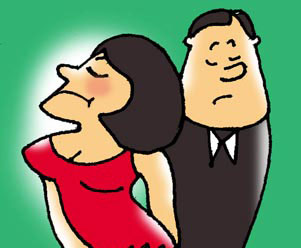
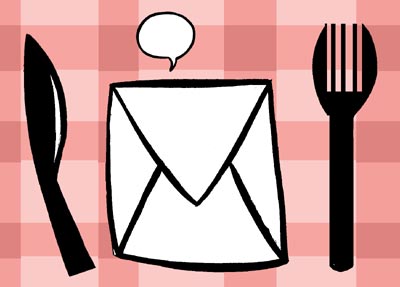




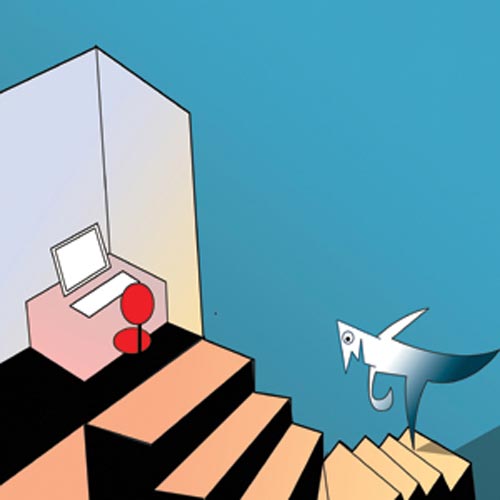


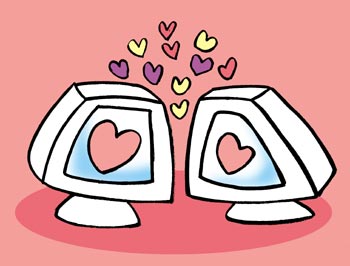

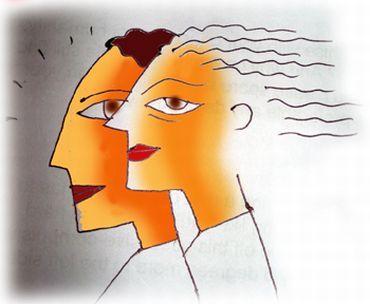

Comment
article